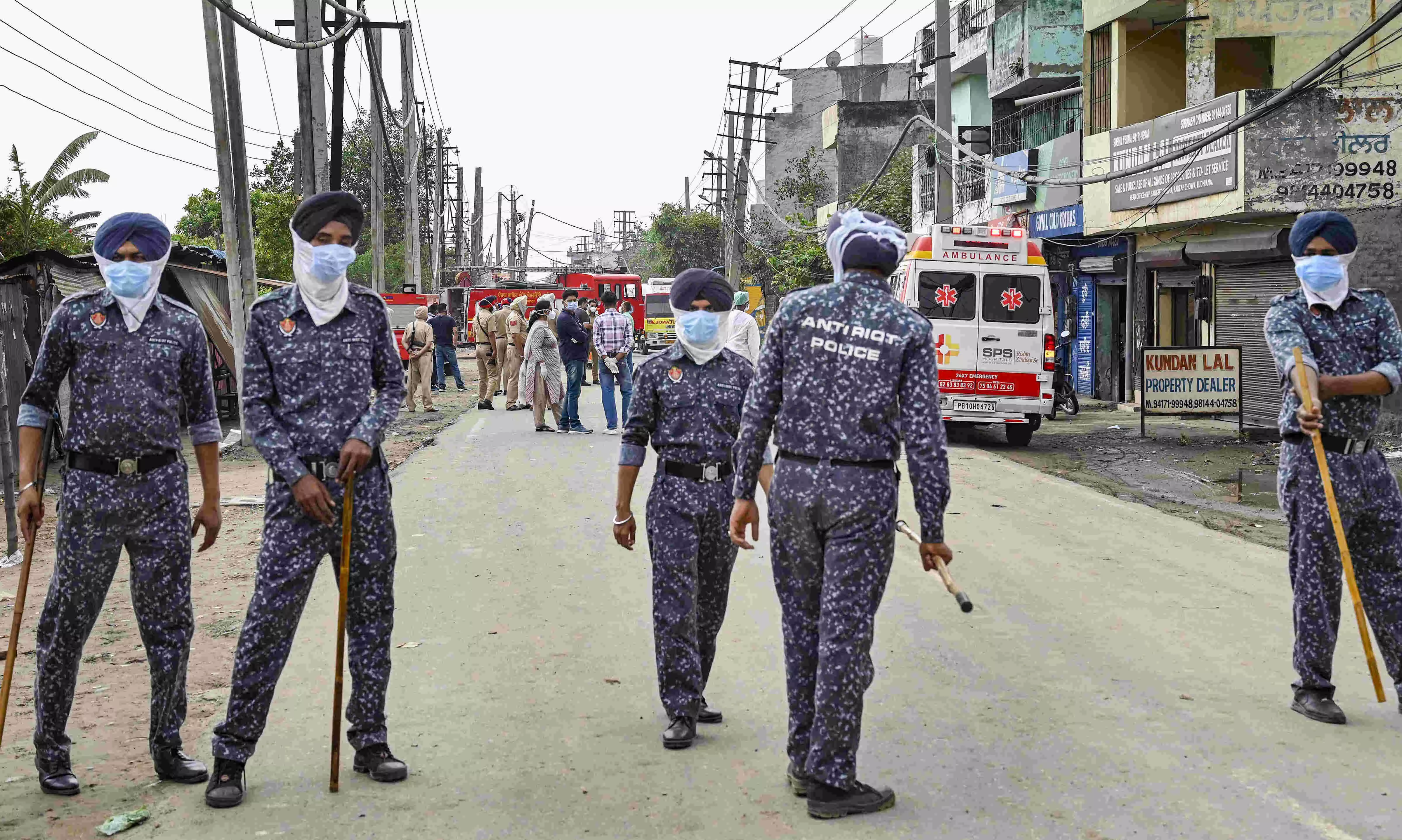Systemic negligence

The tragic incident in the Giaspura locality of Ludhiana, which killed at least 11 people including women and children, raises serious questions about the role of the municipal corporation of the city. On the gloomy Sunday morning, residents of Giaspura were left gasping for breath, as, reportedly, high levels of Hydrogen Sulphide seeped through broken manholes into the residence areas. It is widely speculated that unsafe industrial discharge into sewers could have led to the formation of the highly toxic gas. Hydrogen Sulphide is known to produce extremely rapid CNS (Central Nervous System) and respiratory depression while also affecting skin and mucous membrane. Depending upon its concentration, it is learnt to cause rapid unconsciousness and even instant death. The negative repercussions of the accident are not limited to casualties. The psyche of the survivors, who have seen their acquaintance’s and kins undergo an unnaturally painful death, will, for long, keep them haunting. The mental health repercussions of such tragic incidents are usually very intense. Their treatment has to go beyond a life-saving endeavour. Ensuring sustained counselling and mental care should be the responsibility of the state. While ensuring safety and well-being of citizens must be of utmost priority, fixing the accountability for the incident will be yet another complex task. The entire area has been cordoned off, and preliminary investigation is running parallel to the safety operations. As of now, it would be futile to arrive at any conclusion. However, negligence in management of industrial waste and sewer systems has been a general problem across the country. These incidents of negligence hardly make news unless there is a disaster. In the particular case, allegations have surfaced around improper cleaning of the sewer system. The Indian Express has quoted Jaspal Singh, Councilor from the ward where the incident occurred, who emphasised on the need to probe the discharge of industrial effluent in the sewerage system. He cited persistent inaction on this front, irrespective of which political party rules the state. The worst fears are that like in many other cases of negligence, the investigation process may be prolonged and even turn out as inconclusive, eventually. India, after all, has a discouraging history on this front. Just three years ago, a gas leak at a chemical plant killed at least 12 people in the city of Visakhapatnam, Andhra Pradesh. Subsequently, it was found that the company held responsible for the catastrophe was operating without necessary renewal of environmental clearance. One can also not forget the Bhopal gas tragedy of 1984, which was undoubtedly one of the most unfortunate disasters in post-independent India. The Bhopal tragedy bore testimony to the extent of damage that could result from negligence. One can never tell, when a particular incident, finding adverse circumstances, could spiral out of control! No amount of lamenting or regret can undo the damage afterwards. It must be clarified that the intent here is not just to highlight the particular cases. The problem lies in a plethora of persisting loopholes that can turn into disaster on any given day. These loopholes are all-pervasive and of systematic nature. India, despite its long march to growth and prosperity, has still not learnt to balance between development pursuits and public safety. One can also notice a differential here. Public safety is relegated to an insignificant position when it comes to the issues pertaining to marginal sections of society. It is an uncontested fact that in most of the urban settings, those living on the margins are recklessly allowed to suffer the side-effects of development. In the present case also, the locality is predominantly housed by migrant workers who work in factories. Sadly, the number of those living on the margins far exceeds the number of those belonging to well-off sections. The deaths reported in Giaspura, and in many similar cases across India, are manifestations of the consciously convenient ignorance around marginal populations. Improper cleaning of sewer systems, unsafe disposal of industrial waste, broken manholes etc. are not new problems for India. The greatest obstacle in fixing these problems has been the lack of policy focus. Speedy and strict fixing of accountability in the present case is vital to giving the required push to policy in the direction of safeguarding the life and health of all citizens.



